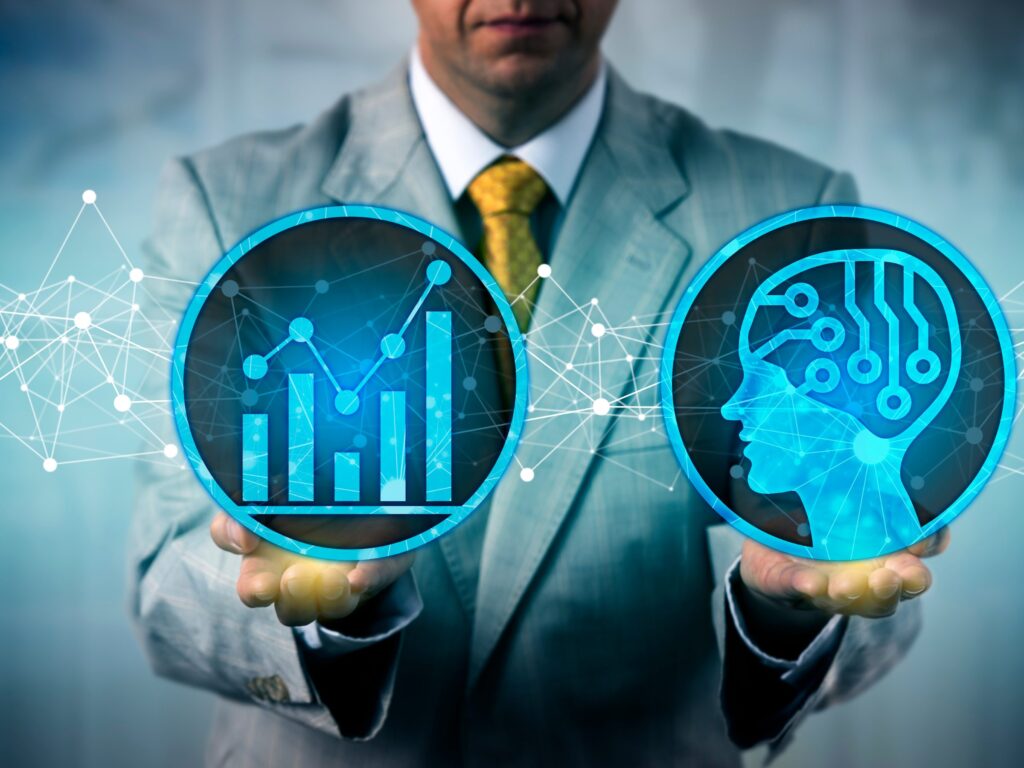What is the Big AI?
“Big AI” generally refers to advanced artificial intelligence systems that are capable of performing a wide range of tasks and handling large-scale data processing. These systems leverage sophisticated machine learning models, including deep learning and neural networks, to perform complex computations and decision-making processes. Examples include AI developed by major tech companies such as Google, Microsoft, and OpenAI, which power applications from language models to autonomous vehicles.

Which is the Best AI Company?
Determining the best AI company can be subjective and depends on specific criteria such as technological advancements, market impact, and innovation. Here are a few leading companies in AI:
- Google DeepMind: Known for its pioneering work in deep learning and AI research, including the development of AlphaGo and AlphaFold.
- OpenAI: Creator of the GPT series, including ChatGPT, known for its powerful natural language processing capabilities.
- IBM: Notable for its AI platform Watson, which offers solutions in various sectors such as healthcare, finance, and customer service.
- Microsoft: Integrates AI across its products and services, including Azure AI, and collaborates with OpenAI to bring advanced AI capabilities to its platforms.
- Amazon: Utilizes AI in its AWS services, Alexa voice assistant, and recommendation algorithms for its retail platform.
What is a GPT in AI?
GPT, or Generative Pre-trained Transformer, is a type of artificial intelligence model developed by OpenAI. It is designed to understand and generate human-like text based on the input it receives. The model is trained on vast amounts of text data from the internet, allowing it to generate coherent and contextually relevant text for various applications, including chatbots, content creation, and more. GPT-3 and GPT-4 are among the latest iterations of this model, known for their impressive language generation capabilities.
Who Invented AI?
The concept of artificial intelligence has been developed by many researchers over the years. Some key figures in the history of AI include:
- Alan Turing: Considered one of the fathers of AI, he proposed the idea of a machine that could simulate any human intelligence task.
- John McCarthy: Coined the term “artificial intelligence” in 1956 and organized the Dartmouth Conference, which is considered the birthplace of AI as a field.
- Marvin Minsky: Co-founder of the MIT AI Laboratory and a key contributor to AI research and development.
- Herbert A. Simon and Allen Newell: Developed the Logic Theorist, considered the first AI program, in the 1950s.
How Does AI Make Money?
AI generates revenue through various business models and applications:
- Cloud Services: Companies like Amazon, Microsoft, and Google offer AI-powered cloud services, providing businesses with tools for data analysis, machine learning, and automation.
- Software as a Service (SaaS): AI-driven SaaS platforms offer solutions such as customer relationship management (CRM), marketing automation, and human resources management.
- Advertising: AI algorithms optimize digital advertising campaigns, targeting specific audiences to increase ad effectiveness.
- Subscription Models: AI products like advanced language models (e.g., ChatGPT) often have subscription plans for access to premium features and capabilities.
- Licensing and Partnerships: Companies license their AI technologies to other businesses or form partnerships to integrate AI into various products and services.
How Can I Use AI?
AI can be utilized in various ways depending on your needs:
- Personal Assistants: Tools like Siri, Alexa, and Google Assistant can help manage daily tasks, set reminders, and provide information.
- Content Creation: AI can assist in writing, editing, and generating creative content through platforms like ChatGPT and Jasper.
- Data Analysis: Businesses can use AI tools to analyze large datasets, identify patterns, and make data-driven decisions.
- Customer Service: AI-powered chatbots and virtual assistants can improve customer support by providing instant responses and handling routine queries.
- Automation: AI can automate repetitive tasks in various industries, increasing efficiency and reducing human error.
Big AI Developments: Apple and Beyond
Recent news stories have brought to light a number of important developments in the field of artificial intelligence. This is especially true for Apple’s big announcements and ongoing trends in the AI business.
Apple’s AI Push at WWDC 2024
In 2024, Apple’s Worldwide Developers Conference (WWDC) demonstrated the company’s increased attention on artificial intelligence. By including generative AI into its ecosystem, Apple is improving user experiences on all of its products, including the iPhone, iPad, MacBook and Apple Watch. Among the new features are automated photo and video editing, personalized exercise routines, and sophisticated Siri skills. The goal of these revisions is to improve everyday usability and seamlessness of AI technologies.
Tim Cook, CEO of Apple, underlined the company’s dedication to artificial intelligence and mentioned the substantial funds set aside for its development. AI should improve user engagement and functionality when it is included into Apple’s platforms, therefore becoming an organic aspect of the Apple experience.
Broader AI Trends and Innovations
Beyond Apple, there are fast developments and increasing integration of AI into many different industries. Among the important themes covered during the AI & Big Data Expo North America 2024 were responsible AI, data monetization, and AI-driven digital transformation. With over 7,000 guests from many sectors, this event highlighted the broad influence of AI technologies.
Growing application of generative AI in creative domains is one noteworthy trend. With generative video models, companies like Runway are pushing the envelope and creating excellent short clips that are on par with official animations. Hollywood is taking notice of this technology as studios like Disney and Paramount look at how it may improve special effects and simplify production procedures.
Challenges and Considerations
AI presents serious problems even if it has many advantages, especially with regard to ethical usage and false information. Deepfakes and other AI-generated content are proliferating and endangering public confidence and the integrity of the election. Robust countermeasures and regulatory frameworks are required because misuse of AI tools is more likely as they become more widely available.


Comments are closed.